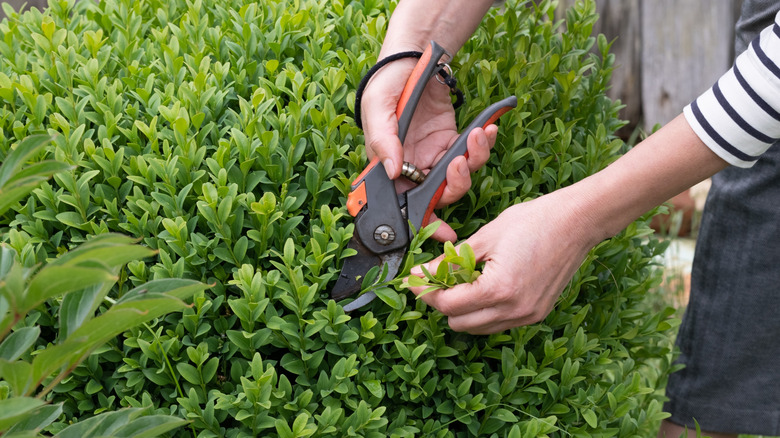Why Your Garden's Shrubs Smell Like Cat Pee (And What To Do About It)
If you've ever walked past a shrub in your yard and caught a whiff of something that smells suspiciously like cat urine, you're not alone. Chances are it is not the stray cat, but your boxwood (Buxus L.). This popular evergreen is widely used in landscaping for its dense foliage, formal shape, and year-round color. Boxwood is also known to be deer-resistant, making it a preferred addition to gardens often damaged by wildlife. But some varieties are notorious for producing a pungent, ammonia-like odor that can catch gardeners off guard.
The scent is produced by organic compounds released from the plant, particularly on warm days or after rainfall. These compounds, also known as volatile oils, are part of the plant's natural defense system. The odor tends to be strongest in heat and high humidity, a combination which can amplify the release of oils, making it more noticeable in certain climates. Some gardeners only notice the smell when trimming the plant or brushing against it. Not all people can detect the odor, and not all boxwoods produce a strong odor. Certain cultivars like the English boxwood (Buxus sempervirens 'Suffruticosa') are more likely to offend the nose. And while the odor can be mistaken as cat urine by many people, others describe it as more earthy or even medicinal. If you're looking for the best hedges you can plant, it's worth researching low-odor boxwood varieties before deciding.
How to reduce the smell produced by boxwood
If you have boxwood in your landscape and cannot stand how they smell, you don't necessarily have to remove the plants. Caring for the shrubs can help eliminate the odor. You can also reduce their stress by pruning at the right time of year, which is typically late winter or early spring. How you water the boxwood can also play a role. Avoid heavy overhead watering, which could strengthen the odor. Instead, opt for drip irrigation or water it at the base to keep the foliage dry. If the scent continues to bother you or your guests, remember that there are more than 200 different types of boxwoods and not all of them are pungent. You could also consider gradually replacing those strongly-scented varieties with more neutral-smelling boxwood alternatives. Shrubs like inkberry holly (Ilex glabra) or Japanese holly (Ilex crenata Thunb.) offer similar structure and evergreen color without the smelly side effects.
Ultimately, the best way to avoid the "cat pee bush" problem is to choose the right variety when starting your garden or landscape project. When shopping for boxwood, ask an employee at the nursery about the best bushes to plant that have low to no odor. While the smell might be a nuisance to the nostrils, it is not a sign of disease or damage. It's just a quirky trait of an otherwise dependable plant.

